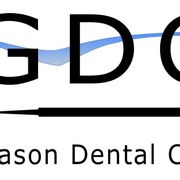
When your teeth are sensitive to cold, the mere thought of a chilled drink or frozen treat can leave you cringing. Cold sensitivity is a common, yet painful problem, and it can stem from several causes. The good news is that your dentist can help you get to the root of the problem and determine the right treatment.
Common Causes of Tooth Sensitivity
Cold sensitivity is often mistaken for tooth decay or gum disease, both of which can cause similar discomfort. Therefore, if you experience pain when you have cold foods or drinks, see the dentist right away to identify the true source of the problem. Other issues that could require intervention include a cracked tooth or filling, as well as receding gums that have exposed the root of the tooth.
That being said, it’s just as common for oral hygiene habits to lead to sensitive teeth as it is for damage or disease to be the culprit. Some of the ways you might be contributing to a sensitivity problem include:
- Brushing too hard. Using too much pressure when you brush your teeth can damage the enamel.
- Eating acidic foods. Eating too many acidic foods over time—such as wine, citrus, tomato-based foods, coffee, or soda—can wear away at tooth enamel.
- Grinding your teeth. Clenching or grinding your teeth can damage enamel and cause cracks that lead to sensitivity.
- Bleaching. Sometimes teeth whitening treatments can cause temporary sensitivity.
How to Reduce Tooth Sensitivity
 If you experience pain when you eat cold foods, the first step is to see the dentist. Treating cavities or gum disease right away will help reduce sensitivity while also preventing further damage.
If you experience pain when you eat cold foods, the first step is to see the dentist. Treating cavities or gum disease right away will help reduce sensitivity while also preventing further damage.
If tooth decay isn’t the cause of your sensitivity, the dentist will likely recommend switching to a toothpaste designed for sensitive teeth and using a soft toothbrush. You’ll also need to use a lighter touch when brushing. Consider using an electric toothbrush that will alert you with a tone or vibration when you are brushing too hard.
When there is evidence that you grind your teeth, you may be prescribed a mouth guard to wear at night. In extreme cases, grinding may indicate the need for dental work to correct your bite, or treatment for any underlying causes of the grinding, such as stress or anxiety.
If your teeth are sensitive to cold, don't delay a visit to the dentist. Getting treatment can help alleviate your discomfort and prevent further issues. For help in the Beatrice, NE, area, turn to Gleason Dental Clinic. For 45 years, these compassionate dental professionals have cared for the smiles of patients of all ages, providing general and cosmetic dentistry. To learn more about the practice and what they can do to help reduce your tooth sensitivity, visit their website or call (402) 228-3119 to make an appointment.
About the Business
(4 reviews)
Have a question? Ask the experts!
Send your question

